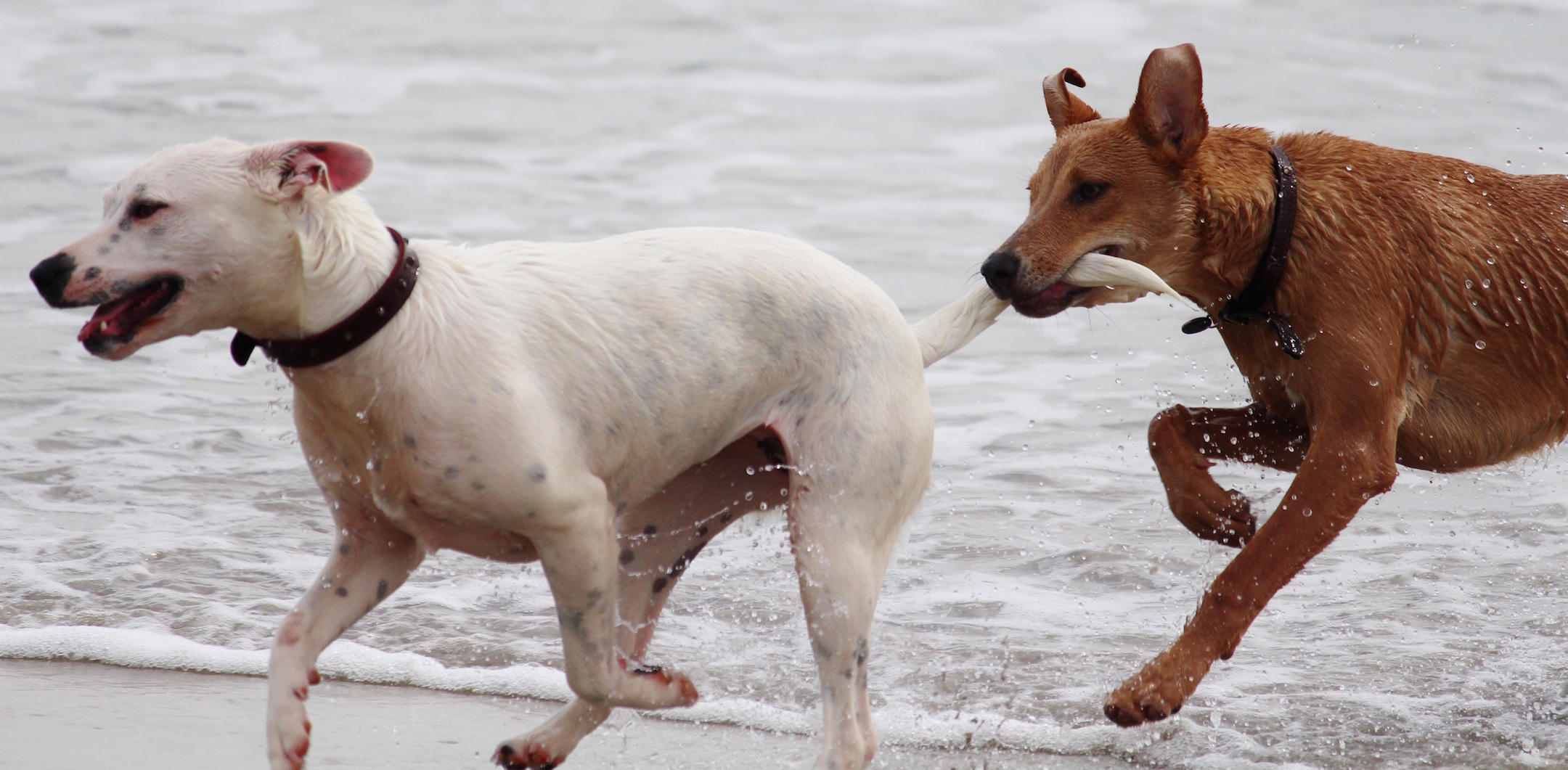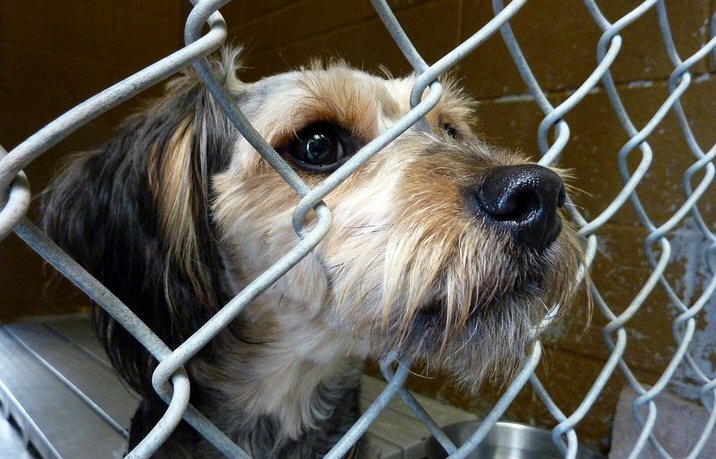PLEASE NOTE: Dog Garden Flags are currently unavailable. Please check back later. Thanks for your interest.
Dog Neutering:
No More Chasing Tail

Dog neutering is a safe and necessary procedure that vets do very routinely.
Your dog will not resent you, (as you may have heard) and he will not get fat and lazy, unless you allow him to.
Dog Neutering Has a Quick Recovery Time
He'll be back chasing his tail in no time, but only his own. Never the wiser that his nights of chasing other tail are over.
Literally, once the anesthesia wears off after several hours, his personality will return quickly and you'll only need to guard against licking and chewing of the stitches which are generally removed after 10-14 days.
Any major changes in personality once anesthesia wears off is a red flag that something could be wrong. His basic need for food and water, going potty, etc. should return quickly. Consult your vet immediately if anything seems amiss. Excessive thirst, vomiting, extreme swelling, severe agitation are also reasons for concern.
It may take up to 8 weeks for all of the hormones and desire to roam have completely vanished, but gradually, testosterone will fade completely and you'll have a much calmer dog.
The Benefits of Neutering Early
The Benefits of Neutering Early
Dog neutering can be done anytime after 8 weeks of age, but most vets will agree that neutering before 6 months of age is ideal. Dogs of all ages can still benefit from de-sexing. Even senior dogs under the care of a competent veterinarian can be fixed if the pros of doing so would outweigh the cons.
Almost all vets and dog trainers agree that unaltered male dogs have the tendency to be more aggressive and sometimes even harder to train, especially when it comes to confinement.
However, an altered male dog will:
- Be less likely to roam. When it comes to male dogs, unlike females who only come into estrus about every 6 months, a male dog will feel the urge to mate whenever a female is within nose shot. Your male will not be able to control his urge and no amount of training can 'train-out' instinct.
- Have less aggression.
Aggression might be the result of the extra testosterone he carries.
This hormone as well as the instinct to fight and to roam will be
diminished in an altered male.
- Be less likely to 'mark' (or spray). An altered male dog, not driven by the instinct to mate will also have a diminished urge to mark his territory for the purpose of warding off other male dogs.
- Be far less likely to "mount". If your dog has ever humped the leg of "polite" company, you know exactly what I'm talking about. This embarrassing behavior is not exactly socially friendly.
- Have little to no chance of cancer related to the prostate or testicles.
- Live longer. Studies show that more than 60% of unaltered male dogs over the age of 5 years old show signs of prostate enlargement. Unaltered male dogs are also way more likely to escape, get hit by a car or become a 'lost dog' statistic.
Why Dog Neutering Is Important
|
Approximately 11,000 dogs are being euthanized every day (every 9-11 seconds), in the United States alone. Dog neutering would have prevented a large portion of these poor creatures who may never know the warmth of a soft bed, loving family life or any of the other things that dogs live for. |
- Controlling the ever-growing population of unwanted, stray and homeless dogs is a responsibility we all share. Humans domesticaed dogs over 16,000 years ago. Meanwhile, they've given us their unconditional love, protection, companionship and unwavering loyalty. Yet humans, as the "so-called" intelligent species, haven't yet found a way to do the same for them.
- The life of a shelter dog is a sad one. Their keen noses tell them that death is in the air, even if they don't realize why. They also don't understand that their chance of ever being adopted is less than 50%, but they do know they don't belong there.
- Even for the lucky ones, the dogs who do get adoped, 1 in 10 of those will be returned to the shelter for a variety of reasons.
And your unaltered dog can and will escape...
Even if you're the most responsible dog owner in the world, the instinctual urge to mate for an intact dog is a powerful force of nature. If your male dog is intact, he will find a way out of your clutches, eventually.
You may think, if the need arises, that you'll find homes for all the puppies. But will you be able to find homes for the puppies of those puppies and so on? Trust me, you won't.
Most people love their dogs and couldn't imagine them dying a slow death as they languish in a shelter, but that is exactly what can and will happen to (at least a large portion of) your dog's puppies and their puppies... and so on.
Is Dog Neutering Safe?
A healthy dog in the hands of a competent veterinarian can be safely neutered.
The men reading this page will hear the word castration and need to cross his legs, but don't feel bad for your dog.
Dog neutering is not a punishment. The physical act of dog castration (removal of testicles) for the purpose of saving lives and helping to end the surplus population of unwanted animals is a good thing.
Neutering your dog: You CAN afford it! And there is help available.
There are several national organizations that provide financial help for those who seek to do the responsible thing. Click on the link above to find one in your state. If you live outside of the United States, do a google search for your country to find financial help that may be available to you.
On top of the financial help available to you,
there are more than likely several low-cost spay neuter
programs/facilities in your area. This link will help you find one.
Click here for information on spaying.
There may be even more benefits of spaying when it comes to your female dog. Click the link above to find out why.


New! Comments
Leave us a comment if you have something you'd like to share or add to what you just read here. Or contact us with questions or comments.